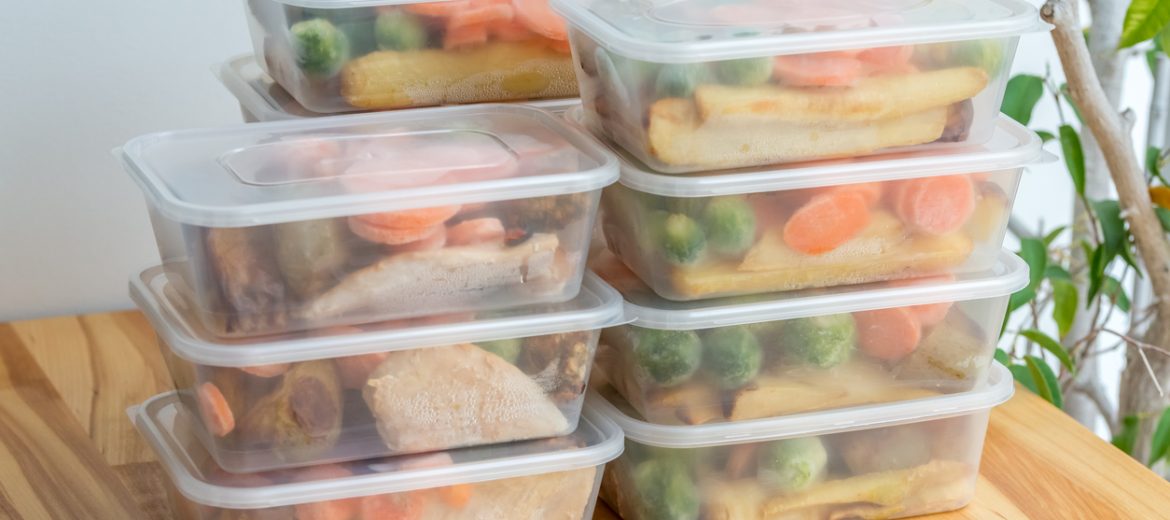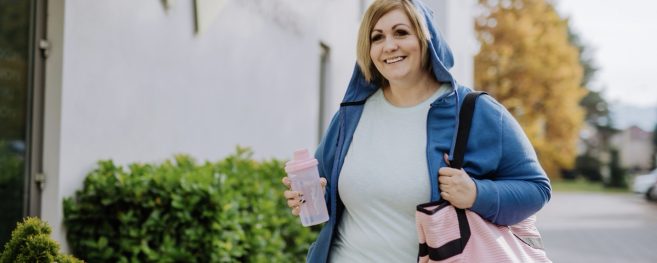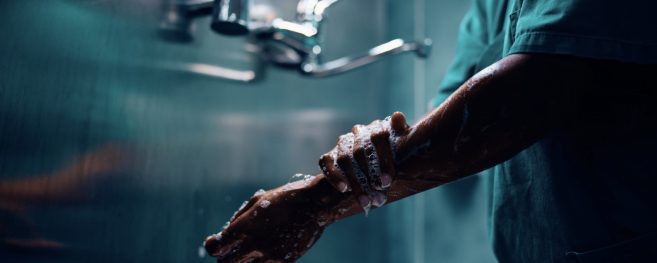Effective Portion Control and Weight Loss Success Through Mindful Eating

How can I learn to not eat too much?
By: Emilie Rosano MS, RD, CDN
It is not only what you eat but how you eat that affects your weight loss. Mindful eating is a technique that will teach you to appreciate the food you are using to nourish your body by focusing on each bite. Distractions during meal times lead to mindless (over)eating. Remember, it takes some time for your brain to receive the signal that your stomach is full. By slowing down your eating pace, you will realize you are fuller sooner and therefore consume less calories.
Tip: Put your fork down between bites, use your non-dominant hand, or use chopsticks (if you are not a pro!) to encourage a slower eating pace.
Portion control is a key factor in weight loss success.
Never eat directly out of a bag or box as it is easy to lose track of how much you are consuming.
- Pay attention to serving sizes,
- Measure out portions, and
- Put the rest away- out of sight, out of mind.
Meal planning is a strategy will enable you to prepare portion-controlled meals in advance so you do not over-serve yourself at meal times when hungry. Research shows that people consume more food when using larger serving plates and utensils.
Tip: Leave the guesswork out of meal preparation, a food scale accurately weighs portions.
Protein is a key factor in regulating food intake.
Protein takes longer to digest and will therefore keep you full for longer. You should consume proteins at every meal (three times a day) and possibly as a snack (between meals) if needed. An appropriate serving size of lean protein at meals is three ounces; you should always focus on eating this first (followed by non-starchy vegetables- if you are still hungry).
Tip: Do not skip meals, hunger pangs encourage overeating!
You must hold yourself accountable for your choices.
Keeping a food journal is a great tool to help you do just that. Tracking your food will encourage you to consider what you have eaten already as you plan what to eat at the next meal. Research shows that those who track their food lose twice as much weight as those who do not. Documenting how the food you eat makes you feel may also be helpful in recognizing food triggers that cause you to overeat. Recognizing obstacles in your weight loss journey is the first step to overcoming them.
Tip: Do not forget to track beverages, which can be high in calories/sugar.











